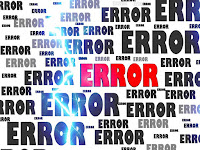Should You Give Life to Inanimate Objects in Your Writing?
What do you notice about the following phrases?
These are examples of personification, animating something that is inanimate. Another term for this literary device is a pathetic fallacy.
Vocabulary.com defines pathetic fallacies:
A fallacy is a type of mistake, especially an illogical one. The word pathetic can refer to things that involve emotion. The pathetic fallacy is the illogical act of saying that something inhuman has emotions. Although the pathetic fallacy is a kind of flawed logic, that doesn’t mean you should avoid it. Poets use pathetic fallacy all the time in phrases like “the wise moon” or “the generous sun.”
My instructor pointed me to John Russkin's essay Of the Pathetic Fallacy for guidance. I looked up the essay, and though it took intense concentration for me to follow the convoluted verbiage of this writer, his point is that the writer shows weakness in his writing when attributing emotions to something that can't have emotion. The essay focuses on poetry, and he declares that the second order of poets, weaker poets, use this approach to writing. He claims the higher order, or first order of poets, steer clear and use truth in their writing.
During the workshop, I rewrote two sections of my short story. My first question was how to drop them. The instructor's advice was to say what I meant instead of using PF. For example:
- the door whispered shut
- the sigh of the wind
- moisture fled
- my body screamed
- the fragrance assaulted me
- tears threatened

These are examples of personification, animating something that is inanimate. Another term for this literary device is a pathetic fallacy.
What is a Pathetic Fallacy (PF)?
I recently attended a short story workshop where the instructor called these pathetic fallacies. He told me not to use them. The comment surprised me. I like them.Vocabulary.com defines pathetic fallacies:
A fallacy is a type of mistake, especially an illogical one. The word pathetic can refer to things that involve emotion. The pathetic fallacy is the illogical act of saying that something inhuman has emotions. Although the pathetic fallacy is a kind of flawed logic, that doesn’t mean you should avoid it. Poets use pathetic fallacy all the time in phrases like “the wise moon” or “the generous sun.”
My instructor pointed me to John Russkin's essay Of the Pathetic Fallacy for guidance. I looked up the essay, and though it took intense concentration for me to follow the convoluted verbiage of this writer, his point is that the writer shows weakness in his writing when attributing emotions to something that can't have emotion. The essay focuses on poetry, and he declares that the second order of poets, weaker poets, use this approach to writing. He claims the higher order, or first order of poets, steer clear and use truth in their writing.
Removing PFs
The story I submitted to this workshop had quite a bit of personification, and I struggled to accept the idea that I should eliminate any trace of it. I attended this workshop to gain a different perspective for my writing, so I rolled up my sleeves and gave it a try.During the workshop, I rewrote two sections of my short story. My first question was how to drop them. The instructor's advice was to say what I meant instead of using PF. For example:
- doors whispered shut changed to hearing the whoosh of compressed air as they closed behind me
- moisture fled changed to I licked my lips
It worked.
The next time my writing group met, I shared this insight. Their reaction? Complete horror and disbelief. They like pathetic fallacies and continue to use them. In a way, I felt vindicated.
Will I stop using personification? Probably not, but I will be more aware of this device and how I use it as I move forward.
What do you think? Is it ok to use it or is this a trope we should avoid at all costs?



Comments